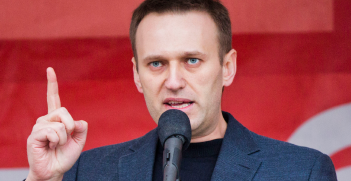Why Prime Minister Turnbull is Invested in a Paris Climate Agreement

As Prime Minister Malcolm Turnbull prepares to travel to Paris for the COP Climate Change Conference, signs are emerging that he views climate diplomacy and international agreement on climate change as the best way of selling climate policy to dissenting conservative voices at home.
This week, Prime Minister Turnbull endorsed a G20 position that Paris climate talks should involve a long-term commitment to decarbonise the economy.
For Australian climate action advocates this is good news. So far, the change of Prime Minister hasn’t been accompanied by a significant shift in Australia’s climate policy. Indeed, despite serious concerns about both the efficacy and cost of Abbott’s Direct Action and Turnbull’s promotion of alternative approaches to emissions reduction in the past, the new PM has endorsed and defended this policy since taking the top job.
At one level, this is surprising.
Malcolm Turnbull clearly cares more about climate change and Australia doing its part than his predecessor. Of course that isn’t saying much given Abbott’s assault on carbon pricing and occasional embrace of climate denial. But Turnbull risked much to try to pull colleagues towards support for genuine climate action in 2009, so much so that it cost him his job.
Of course, this is precisely why the lack of a climate policy sea change is not surprising. Turnbull has managed to convince conservative colleagues to give him another shot at the top job, despite lingering suspicion he isn’t really “one of us”. The last thing he wants is to confirm the suspicions of those on the far right by returning to a policy area that exposes the gap between his view of the national interest and those of the Howard and Abbott governments. It is for this reason that he ruled out policy change in this area almost as soon as he took office.
This is also why the agreement in Paris is so important for the Turnbull government and climate policy in Australia. Strong international action on climate change will be crucial if Turnbull is to win over or marginalise those he needs to in order to embrace substantive climate action – members of his own party and constituency.
The Importance of Paris for Climate Action
Of course, Paris is crucial for international climate action generally. In Paris in November and December, Australia will join 190 other countries – albeit in the shadow of tragic terror attacks – in attempting to forge agreement on climate action beyond 2020. After the failure of Copenhagen, much is at stake in coming to an agreement that will at least provide a framework for international cooperation on climate change.
Optimism is growing that Paris will see an international agreement. States have already declared their own national targets, which takes away some uncertainty and the prospect of significant surprises in negotiations. International concern about climate change is building and the two states largely accused of preventing agreement in Copenhagen in 2009 – the US and China – seem determined to avoid playing a similar role this time around.
Certainly, tricky issues around funds transfers to poor countries and the scale of emissions reduction targets will need to be addressed at Paris. However, it seems increasingly likely that Paris will see agreement on both that can be ratcheted up over time.
With some degree of climate change now locked in, even with mitigation action, and prospects for dangerous climate change growing, the stakes are particularly high.
The Importance of Paris for Turnbull
For Turnbull, international agreement will be crucial in helping build momentum for substantive climate action and either persuading or diminishing dissenting voices in his own party and constituency.
If a case is to be made for action in Australia, including revisiting carbon pricing, it will need to be based on a strong international agreement and public support. The latter has been steadily growing in Australia, while the former looks increasingly likely in Paris.
At different points, international negotiations have had significant consequences for Australian climate policy.
In 2009, the failure of Copenhagen talks was a nail in the coffin for Prime Minister Rudd’s emissions trading scheme and quite possibly his leadership. The emissions trading scheme was already under assault from a newly-elected Leader of Opposition in Tony Abbott and a steady decline in public support. However, the failure of Copenhagen meant Rudd couldn’t use the danger of Australia being isolated, left behind or even embarrassed by the international community’s commitment to climate action to sustain a case for strong action.
Even in the case of the Kyoto Protocol of 1997, it was only the election of George W Bush in the United States that gave Prime Minister Howard the confidence to reject the need to ratify a Protocol his government had signed years before. And when the Protocol entered into force in 2005, it began a period of growing public concern about climate action that was central to the election of Rudd in 2007. For a country like Australia, the extent and depth of international cooperation matters significantly for our climate policy.
Aside from last week’s G20 announcement, we’ve already seen signals from this Government of a shift in the way it will approach climate diplomacy. Turnbull has indicated he will attend Paris. Former Prime Minister Tony Abbott didn’t even send a Minister to the first COP. Australia applied successfully to be co-chair of the Green Climate Fund, a fund PM Abbott memorably denigrated as ‘a Bob Brown bank on an international scale’. And pre-climate negotiation briefings for stakeholders, ditched under the Abbott Government, have been reinstated under Turnbull.
The Stakes are High
The stakes are high for the international community in Paris and especially for the most vulnerable to climate change itself.
But for Turnbull – and indeed Australia – they will be crucial if Australia is to begin to play its part in addressing the unprecedented global threat of climate change and begin the difficult transition to a low carbon economy.
Matt McDonald is an Associate Professor of International Relations at the School of Political Science and International Studies at the University of Queensland. This article can be republished with attribution under a Creative Commons Licence.





